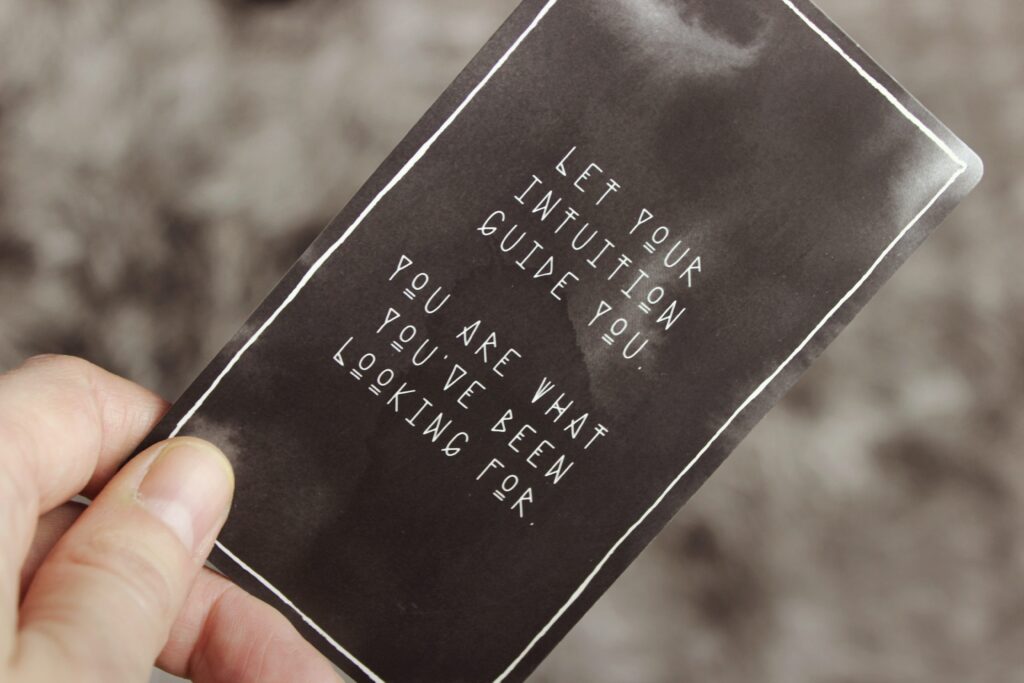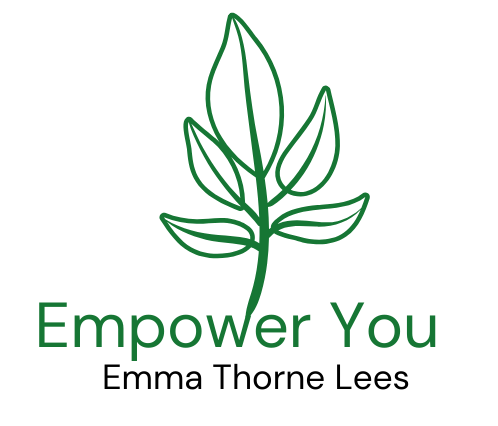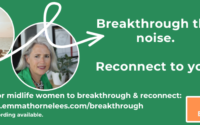Intuitive Eating – Honour your Hunger Review
So it has been over a week since I learnt more about Principle 2, Honour your Hunger (or Honor if you are from North America!) as part of my Intuitive Eating journey. I am enjoying the process so far and finding that reading the books, doing the exercises and trying to at least think about it/take notes each day is helping me integrate. Writing these posts is also holding me accountable which I find particularly helpful.

Some of my key observations from ‘Honour your Hunger’ this last week or so are:
- I have noticed that I am not as hungry as I usually think I am. I think that have denied myself food or been on a lot of diets since adulthood which has resulted in me consistently overeating at mealtimes as there is some level of subconscious fear about when I will be able to eat next.
- I still have the desire to lose weight (esp as my 50th coming up) with my new eating and exercise regime although I am trying to disentangle myself from this, the conditioning is strong! I have managed to not weigh myself though, which has been quite hard!
- Another thing I have noticed more is that when I often have thought I am hungry or need an energy boost in the past I have actually been tired. Where possible I am trying to respond to this with a brief rest, stretch or nap, rather than my habitual chocolate or some carbs which inevitably lead to an energy crash and no real satisfaction.
I have found the workbook exercises in particular have been helpful for me as someone who is not necessarily very in tune with all my body cues.
Interoceptive awareness
What on earth is that?
That was my first thought on reading those words. Interoceptive awareness is our ability to tune into our body’s cues, needs and respond to them e.g. if you are cold, you put on a coat. The workbook really helps pin this down and put it into practice.
One of the first exercises is perceiving your heart rate. I could obviously feel it when I placed my fingers on my wrist and counted my heart rate. But when I tried to perceive it by placing my hands on my legs and closing my eyes in stillness, I could not perceive it at all and was more than a little sceptical about how easy this was for anyone. The workbook asks:
‘Where you might feel it in your body?’
But, probably more importantly,
‘What your self talk was whilst trying to perceive it?’
Again self compassion is critical when trying to tune into yourself.
How can you make friends with your body if you are constantly criticising or judging it?
Thankfully (for me!) there are also other ways to tune into your body by sensing for other body cues from thirst, to the need to urinate, to the level of hunger or fullness, tiredness, stress or illness levels. There is a helpful worksheet to use throughout the day and note where you feel any of these things and the degree to which it is pleasant, unpleasant or neutral. I have certainly found myself more aware of my thirst and acting on it in the last week. I am also more attuned to when I am hungry, possibly as I am fairly constantly asking myself am I hungry and if so, what do I fancy? I haven’t quite got to really be in tune with myself in terms of what I really want to eat in the moment, plus I am also a little wary about whether I would have the item I would want to eat at that moment, or the time/energy to concoct it if it isn’t readily available! One thing I have experimented a bit with is is looking through magazines and recipes to see what types of food inspire me and I have noticed that I am finding the thought of fresh salads, fruits and lighter meals much more appealing than I have been preparing, certainly for our evening meal in the last few years. Now I just need to persuade the rest of my family to eat the same way!

Sensing hunger and fullness
I am still working on sensing my fullness levels in particular as this has been a tough one for me. Some days I sense my fullness and have actually stopped myself mid meal, other days, I am just in the habit of finishing my plate or having a bit more of something I love. Old habits die hard!
The workbook also discusses nourishment as self-care as sometimes if you are under chronic stress, are an athlete or have an illness you can’t rely on hunger cues to tell you when you are hungry (I am not sure I have ever had this problem though). You might feel full, but you still need energy to keep going. Generally it is best to not go longer than 4 hours without eating (obviously apart from overnight) and so it is important if you are stressed, an athlete or ill that you eat to nourish yourself still.
An interesting idea in the workbook was having an emergency type plan for what you can eat if you aren’t hungry but should eat something, or similarly if you are really hungry but don’t have the time or energy to cook a full meal. It asks you to think about meal and snack ideas to help at these times which I found pretty difficult, particularly for meals. A snack I would go for a banana, fruit, yogurt, corn cakes or nuts, but a meal I would tend to defer to a sandwich, but I know I don’t feel great if I eat too much bread. Very happy to receive anyone’s alternative meal suggestions below!
Thoughts vs body
Some interesting questions are also posed around distinguishing between your mind versus your hunger cues. Sometimes we can get confused around what our thoughts are vs what our body is trying to tell us. For example, if I ate an hour ago, but am now feeling hungry (clearly so, with my stomach rumbling, say), my mind might say that ‘I can’t be hungry as I just ate’, but my body is hungry. This hunger can be for whatever reason whether down to physical activity level that day or the day before or just because I am having a hungry day. Honouring your hunger is important regardless.

We need to be aware between of what our mind is saying (usually a thought, opinion or judgment), a body cue (a direct experience of a sensation from our body) and self-care (an action taking care of your needs, but actually also involves the mind). Eating for self-care might also include eating when you aren’t hungry but know you will be unable to eat for a few hours due to work or being at a concert, for example.
Distinguishing between these 3 – our mind, body cues and self-care at any point in time can help guide us what, when and how much to eat.
The importance of self care
The workbook also talks about how it is hard to listen to our body’s cues if we are not looking after ourselves and live a busy or stressful lifestyle. Having boundaries to protect ourselves and our time is important on so many levels, particularly to be able to listen to what we want and need.
I am pretty good at looking after myself and prioritise my sleep and mental health, but know there are always some improvements to be made. I think that Intuitive Eating has made me also think about how I nourish myself at all levels. I have decided in the last couple of weeks to be far stricter with myself about social media, particularly Facebook and Instagram and try and only check them once a day – mainly for my sanity! More importantly is my awareness of my thoughts and being self compassionate, trying not to compare to others and meeting myself with kindness. Again, a work in progress!
I am also conscious that I have often related rewarding myself with food, just as in the past I may have finished a day or long week with a glass of wine or two, now I might do that with something sweet (and then the floodgates open!) This is not a major problem (well, apart from the floodgates bit), but I feel I need to remind myself that there are also other ways to seek pleasure and I am keen to explore those further. I am also watching less tv in the evenings and reading or listening to a podcast or playing a game with the kids instead, plus I am doing a lot more sport which I enjoy (which is particularly interesting for someone who never classified themselves as sporty).
Awareness – thoughts and body

The key thing I think in all this is our awareness around our thoughts and our body cues. It is not always easy to be in tune with these and I know it has taken me several years to be more in touch with my thoughts, let alone my body. For me it has really helped to meditate (groan, I know this has become the thing to say these days, but there is a reason for it!) I particularly find the guided meditations of Tara Brach helpful and I have also done a Transcendental Meditation Course. Meditation might not be for everyone, but I am pretty sure that sitting 15-20 minutes a day with your eyes closed and focusing on your breath will never do anyone harm. A mindfulness practice is also a good alternative.
To get in touch with your thoughts and body I also recommend:
- Seeing a therapist,
- Doing yoga (some great teachers on YouTube) or another slow movement practice like Tai Chi or Qi gong,
- Spending time in nature,
- Exercising regularly – something you enjoy,
- Journalling around whatever is in your head or ask yourself what would your ideal day look like, what is your wildest dream or goal?
- Listen to podcasts around self-care and self-improvement/inquiry. I particularly enjoy the podcasts on Sounds True and Tara Brach’s talks,
- Talking to a friend or family member.
Of course, everyone is different as to what works for them and what they might find useful to tune into themselves. Regardless a huge dose of self compassion is needed combined with self-trust to be able to listen to ourselves and respond to our needs the best way we can.
My conclusions
So far, I am feeling pretty good about this journey and feel I am honouring my hunger (and my fullness!) more. I think I have been a bit over ambitious in trying to learn, integrate and review each principle in a week or so as it doesn’t work like that. There is no set formula that works for everyone. Even if I could read all the information and do the exercises in a day or two, the key part is the integration, daily awareness and practice whether using the workbook or your own questioning/awareness. So I am having to honour myself in terms of being honest about where I am in this process and when I am comfortable to move to the next Principle which most likely will be another few days – so watch this space for Principle 3 – Make Peace with Food. I’m going to have to finish this post later as I am now HUNGRY!
Editing my post today to add and be totally honest! I have just eaten the best part of a bar of chocolate while I bake my daughter’s birthday cake. I only feel a tiny bit guilty about it, despite me saying to myself before I started, ‘I will just have one line’ (knowing full well that that rarely happens!) I know in my heart that I don’t need it, but am feeling tired and quite run down today, but I still have things that need doing today, so chocolate it is and that is ok. I also know that part of me is ok with it as I still have a bit of a transactional mindset – ‘I have done x amount of exercise this week so it is ok’ or ‘I only ate x yesterday’ or whatever. Regardless the world is not going to end. But I also know that a bar of chocolate is not really what my body or my mind needed especially as I feel a tiny bit sick now! Bringing myself compassion and awareness, but still a teensy bit frustrated that I couldn’t see another way of boosting myself in that moment – all a work in progress!! Next time I will try a fizzy vitamin tablet in water as that sometimes does the trick, but the thought availed me in that moment 🙂
What do you think about the principle of ‘Honouring your hunger’ is it something you do or are learning to do? Have you found effective ways to tune into your body cues and when and what exactly you want to eat? Do you have go to meals and snacks for when you get hungry quickly? Please let me know your thoughts, questions, I always LOVE to hear from you.
Images: Jen Theodore, Maddi Bazzocco, Maddi Bazzocco, Heidi Kaden



